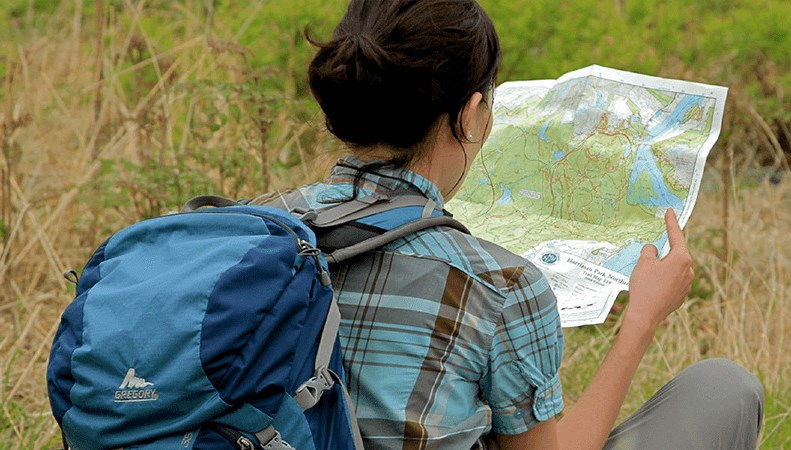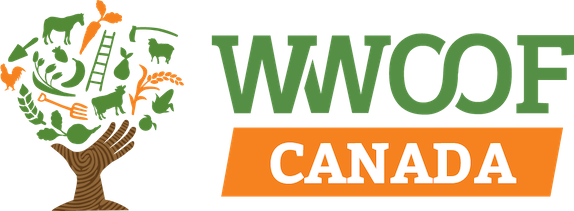
Advisory
Canada, like many countries, has strict labour and immigration laws that prohibit foreign nationals from working in Canada without a work visa. Any failure to comply with applicable laws, including but not limited to immigration laws, can have serious travel and financial consequences. Therefore, it is important that you understand both what visa you need while WWOOFing and how to communicate with border services agents when crossing the border.
This page is intended to give you general advice on what you need to know when travelling to Canada as a WWOOFer. However, you should continue your research on The Government of Canada’s Visit Canada Page. It is your responsibility to obtain accurate and up-to-date information regarding your specific situation from the Canadian authorities directly.
Please be aware that, apart from this page, WWOOF Canada (and that includes our hosts) cannot help you organize your travels to Canada and cannot help you to obtain a visa. Further, WWOOF Canada is not responsible for any problems you may experience with immigration and/or your decisions made during travel.
What Type of Visa/Travel Authorization Do You Need Before WWOOFing?
For WWOOFers travelling to Canada, there are typically three types of visas/travel authorizations that are available to you. They include:
> Electronic Travel Authorization (eTA)
This is not a visa, but a travel authorization that is required for WWOOFers coming from visa-exempt countries, such as France, Germany, and the UK. They typically allow the traveller to stay for three to six months in Canada as a tourist (and yes, for these purposes, WWOOFers ARE considered as tourists). While eTAs simplify the process required to apply for a visitor visa, that doesn’t mean an eTA guarantees entry to Canada. When you arrive, a border services officer will ask to see your passport and other documents. You must show the officer that you are eligible for entry into Canada (more on that down below).
Information specific to WWOOFers: WWOOFers with an eTA have certain restrictions on where they can WWOOF and for how long. See more on those restrictions below.
> Visitor Visa
A visitor visa is for WWOOFers looking to come to Canada from countries that are not visa-exempt. This may require an application process during which you will have to make your case for visiting Canada. Once again, this will be based on you coming to Canada as a tourist. As with an eTA, you will still have to go through border services when you arrive and show them that you are eligible to enter Canada.
Information specific to WWOOFers: Just like those with an eTA, WWOOFers with a visitor visa have certain restrictions on where they can WWOOF and for how long. See more below.
> Working Holiday Visa
This type of visa is offered through the International Experience Canada program. It is available to youth (usually ages 18 – 35) from eligible countries, such as France, Germany, and the UK. For a successful applicant, this visa allows them to travel, work, and WWOOF across Canada for up to two years.
Information specific to WWOOFers: Unlike the two options above, WWOOFers with a Working Holiday Visa have NO restrictions on where and for how long they can WWOOF.
Still uncertain what type of visa you need to come to Canada? Visit this page to find out more.
Restrictions for WWOOFing with Electronic Travel Authorization (eTA) and Visitor Visa
WWOOFing with an eTA or Visitor Visa is 100% legal in Canada. It is considered unpaid short-term work and there are even specific exceptions made for volunteering on farms (find more information about the definition of unpaid short-term work here). However, there are certain restrictions that WWOOFers with this type of visa or travel authorization must be aware of (there are no restrictions for WWOOFers with a working holiday visa). Those restrictions are:
1. You Must Enter Canada as a Tourist
While many WWOOFers come to Canada with an existing plan to go WWOOFing, for the purposes of your visa, you are a tourist. You should make it clear to Border Services agents that tourism is your main purpose for coming to Canada – to visit, explore and stay in various locations. WWOOFing is incidental to your stay in Canada.
2. Four Weeks on Each Farm
Because WWOOFing is incidental to your stay in Canada, you can only volunteer for short periods of time. Therefore, your stays are restricted to a maximum of four weeks per host.
3. No Commercial Farms
As a WWOOFer with an eTA or visitor visa you may only WWOOF with non-commercial farms (also known as family, subsistence, or hobby farms). This is rarely an issue given that 80% of WWOOF Canada hosts are non-commercial. Wondering if your chosen farm is commercial or non-commercial? See the (abbreviated) definitions below, provided by the Canadian government or find more information here:
- Commercial farm: If the farm owner realistically expects to make a profit from the farming activities, this is considered a commercial farm. Commercial farms generally hire outside (steady) employees.
- Non-commercial farm: A non-commercial farm is one where the farm family provides much of the capital and labour for the farm and where the production of agricultural products is to provide for the basic needs of the family, with little extra to sell for the profit of the family.
*If you are still uncertain if your chosen farm is commercial or not, reach out to the host and ask them directly.
Navigating Border Services
WWOOFing in Canada as a foreign national is very much allowed, as long as you abide by the restrictions of your visa/travel authorization. However, many Border Services Agents may not be familiar with WWOOFing and might confuse it with paid work. That’s why it’s important to know how to communicate with Border Services so they understand WWOOFing and your purpose in Canada.
Important Tips
- Be up front with Border services. Answer all of their questions truthfully and honestly.
- If are travelling to Canada with an eTA or visitor visa, be sure they know that you are coming to Canada as a tourist. If WWOOFing comes up, be clear that it is incidental to your time in Canada, not your main purpose.
- Avoid describing WWOOFing as “work” during customs processing—clarify that you are participating as a volunteer for cultural exchange and learning purposes.
- You may want to print off a letter from your host farm confirming your volunteer role, duties, and accommodation details, as this can be useful at the border.
- You may want to print off two pages on the Government of Canada website that address volunteering on farms – the What is Work page and the Assessing Farm Work page. These may be helpful to the Border Services agents to understand WWOOFing and the difference between it and paid work.
Template Letter from Host to Canadian Border Services
Please contact us at info@wwoof.ca if you have any questions.
Legal Disclaimer : This information is intended for general guidance and should not be considered legal advice.

